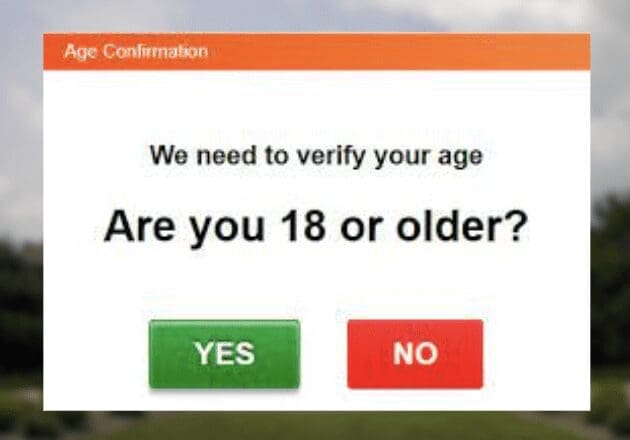

The proposed law would place penalties on pornography sites who fail to conduct a required age verification.
The discussion in a House committee Tuesday got testy in response to a bill that would hold porn websites liable for showing graphic content to minors.
“You’re getting a little snippy, and I’m trying to support your legislation, but I can stop…would you prefer that?” said Rep. Madinah Wilson-Anton, D-Newark, after asking a series of clarifying questions to Rep. Mike Smith, R-Pike Creek.
Smith, who is the sponsor of House Bill 265, said his proposed legislation is a preventive measure and not a solution to the problem.
“This bill will never be something that’s going to solve a full problem,” he said. “Anything we do down here is going to be a piece of the puzzle. It’s not going to be full on and that’s just the nature of what we do here. We’re never going to stop and solve everything but we can help.”
Smith’s bill, which he said is largely based on laws passed in Virginia, as well as Utah and Louisiana, requires a commercial entity that knowingly or intentionally provides pornography and other materials defined as harmful to minors to verify the age of individuals accessing the material.
Civil liability and a civil penalty are imposed on commercial entities that fail to comply with verification requirements.
The bill details harmful materials to minors as any description or representation of nudity, sexual conduct, sexual excitement or sadomasochistic abuse when it: appeals to the prurient, shameful, or morbid interest of minors; is patently offensive to prevailing standards in the adult community as a whole with respect to what is suitable material for minors; and is, when taken as a whole, lacking in serious literary, artistic, political or scientific value for minors.
Those in the House Economic Development, Banking, Insurance and Commerce Committee meeting were all in agreement that the premise and goal of the bill is in good faith and important, especially with the abundance of access and exposure to online pornography that today’s younger generation has.
“Today’s porn is not the porn of a Playboy centerfold. I’s a lot different,” said Rep. Sean Matthews D-Claymont. “There’s research about the neuroplasticity of young brains and the dopamine hits they’re taking are changing the physical structures of the brain.”
He cited reports that large porn companies, particularly PornHub, are “pushing the envelope” with content.
“Research has shown 49% of users of porn reportedly ended up doing things eventually that disgusts them,” he said.
There’s also a growing presence of sex trafficking that results from the growth of porn addiction and porn companies.
“Porn and trafficking are intimately connected,” he said. “There’s a modeling to porn to prostitution connection, we need to be aware of.”
He said many are lured into the porn industry and enter sex work.
Both Wilson-Anton and State Rep. Larry Lambert D-Claymont, had serious concerns about data protection for minors.
“Your motivations for it are noble and I strongly agree that the negative impact that it’s having on young people’s pornography addictions and young developing minds is significant and it really is negatively impacting their relationships and how they see relationships,” Lambert said. “It’s interesting to hear that your solution is the mechanism of this bill, because for me, I do have some concerns.”
He said he’s worried about potential third party entities using some of the age verification data.
“When you have third party entities, particularly for-profit entities, taking ownership of this data, then it becomes something that can then be weaponized against someone dealing with pornography addiction, dealing with, you know, trying to stay away from some of these things,” he said.
He said having a for-profit entity having access to individuals’ search history could negatively impact them because it could be used against them.
“For the third party issue I’ll be working with TechNet on an amended language,” Smith said, “but I also would say that I’m more worried about kids than third party entities. I do think more kids are going to have anxiety, sexual promiscuity, acting out on violent behavior and increased rates of depression.”
Under the bill, any commercial entity that violates the verification guidelines will be subject to a civil penalty of $250 per violation and civil liability for damages resulting from a minor’s access to such material harmful to a minor and reasonable attorney fees and costs.
Wilson-Anton was concerned about simple verification tools, specifically that if a site’s verification is a pop-up that asks if a person is over 18 or not, and a person selects no, while they will get booted from the website, the website will now know that person is a minor.
“That’s the point, they wouldn’t be allowed to, if you’re under the age of 18 you can’t,” Smith said. “So you can’t be verified. You can’t. It’s impossible. You’re not 18 yet. That’s the point of prevention. That’s the point of them, showing an ID because they won’t be able to get on.”
Some of the wraparounds discussed were using a fake ID, a parent’s ID or a VPN, which is essentially a private wifi network.
Smith said companies don’t have to keep the verification data entered, but acknowledged they probably will.
Wilson-Anton also suggested that Smith should consult the Delaware Coalition Against Domestic Violence for its input.
Some of the public commenters said they were concerned that children would still be able to Google or use a search engine for inappropriate images, and the fact that certain social media apps are flooded with pornography and explicit images on a newsfeed without a user even asking for or looking that content up.
The bill received enough votes to be released by committee and will next be discussed by the entire House floor.


Raised in Doylestown, Pennsylvania, Jarek earned a B.A. in journalism and a B.A. in political science from Temple University in 2021. After running CNN’s Michael Smerconish’s YouTube channel, Jarek became a reporter for the Bucks County Herald before joining Delaware LIVE News.
Jarek can be reached by email at [email protected] or by phone at (215) 450-9982. Follow him on Twitter @jarekrutz and on LinkedIn
Share this Post








